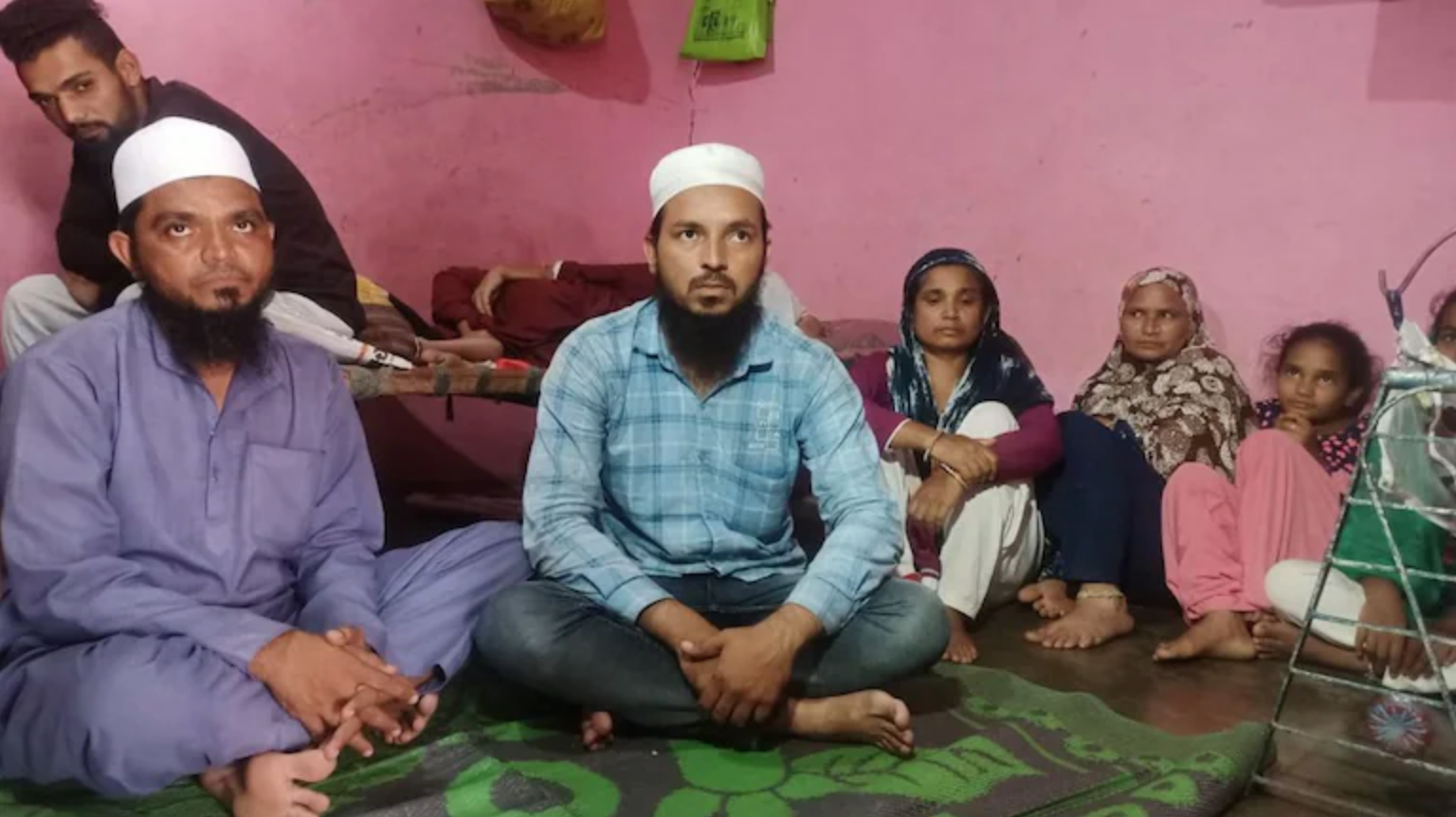Why are Muslim residents of Bilkis Bano's village leaving their homes after convicts’ release?

Several Muslim families from Randhikpur (Singwad) have begun leaving their homes and seeking refuge in Rahimabad Relief Colony of Devgarh Baria taluka in Dahod district, where Bilkis has been residing since 2017. This comes a week after the Gujarat government released 11 inmates serving life sentences in the Bilkis Bano case.
Muhammed Nihad PV | TwoCircles.net
NEW DELHI — Scores of Muslim families from Randhikpur village of Dahod district of Gujarat have left their homes a week after the Gujarat government released 11 convicts serving life sentences in the Bilkis Bano gang-rape case.
During the Gujarat massacre in 2002, a Muslim woman Bilkis Bano was gang-raped in her village in Randhikpur. Rioters murdered 14 members of her family, including her three-year-old daughter Saleha. At the time, she was five months pregnant and 21 years old. On 15 August, as India celebrated its 75th Independence Day, the 11 convicts were welcomed home with garlands and sweets by their families and members of Sangh Parivar.
“We haven't visited that village in 18 years. Neither we felt like returning nor did we have the courage to do so. I don’t think Bilkis would want to go back even if the convicts were still in prison. We have horrid memories of that village. Rapists are being celebrated like heroes. Bilkis is watching. The country is watching how rapists and murderers are being celebrated,” 45-year-old Yakub Rasool, Bilkis Bano’s husband told Outlook magazine.
Randhikpur, which has a total area of 5.6 square kilometres, is a small village with one police station, a primary school run by the government, an Ashram run by the Gujarat government’s Tribal/Social Welfare Department, and a village square with around 50 shops selling food, groceries, and medicines. Twenty years after the massacre, in which 1,044 people were killed, the village has not yet recovered from the pain and trauma.
The 2002 pogrom left the village permanently torn, and the convicts' return has rekindled the old wounds of the survivors.
“We don't have a future in this village. Of the 3,000-plus residents here, only 150-200 are Muslims. But it wasn’t always like this. After the 2002 incident, many families moved out immediately, others did so over years, and some are still hoping to leave,” Sheikh Iqbal, a grocery store owner in the village square, told The Indian Express.
Muslims in the Dahod district submitted a memorandum to the district collector on Monday asking him to reconsider the state government's decision to pardon the convicts. They said that this decision had "dented the image and respect of the judicial system" and needed to be "reversed to restore faith in justice." According to neighbourhood members, the group is also requesting permission to hold a rally in opposition to the remission.
Sultana who arrived at the relief colony with her mother and sister on Sunday told The Indian Express, “We grew anxious and left as we did not feel safe there. It was different when they came out on parole as we knew they were ultimately prisoners but now they have been released.”
“Despite what they did to my sisters, aunt and others, they have been released. They have been roaming in the village and market areas and it is intimidating. I had no choice but to leave my house and shift to the relief colony with my wife and infant as I cannot take a chance,” another villager, a maternal cousin of Bilkis, told The Indian Express.
Previous incidents of intimidation that took place while the convicts were out on parole to prove that the fears of the Muslims who left the village are reasonable.
Sabera Patel-Ghanchi who has also left her house and arrived in Devgadh Baria recalled an incident to The Indian Express. She had filed an FIR against Radheshyam Shah, Mitesh Bhatt, and Shah's brother after they got into a fight in June 2017 when Radheshyam was on parole. The offenders in Sabera's FIR filed a cross-complaint against her. According to her lawyer Vajesinh Labana, the case is currently being heard at the local court.
“I have a daughter and four granddaughters. If they have been released, what is the guarantee that they won’t be emboldened to repeat the crimes? We do not have any security,” Sabera asked.
Bilkis and her family had to shift to multiple places and her children had to change their schools several times due to security concerns. They don’t have a permanent address.
“She has gathered herself and is preparing to fight on. She is recalling the courage that it took to come this far and resolving that she will not give up,” Bilkis’ husband has said.
Meanwhile, the Supreme Court on Thursday agreed to hear a petition challenging the remission of 11 convicts in the Bilkis Bano case. The bench led by Chief Justice of India N V Ramana issued a notice to the Gujarat government to file its response in the matter and asked the petitioners to make the 11 convicts party to the case. The matter will be taken up for hearing again after two weeks.
Muhammad Nihad PV is a sociology student at the University of Hyderabad. He tweets at @nihadbinnisar
